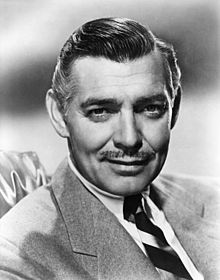Leading man

A leading man is the actor who is the protagonist or plays a love interest to the leading actress in a film or play. A leading man is sometimes an all-rounder; capable of singing, dancing, and acting at a professional level.
A leading man can also be an actor who is often seen in romantic roles. An example of this would be Bruce Cabot's role in King Kong. Less frequently, the epithet has been applied to an actor who is often associated with one particular actress; for example, Spencer Tracy had a similar association with Katharine Hepburn. However, used in this sense, the woman is usually described as the leading lady of the man. The term is also used collectively, as in "Hollywood's leading men" to refer to a group of notable, famous, or popular actors.
Examples
1920s
Leading men of the silent era included Francis X Bushman, J. Warren Kerrigan, Douglas Fairbanks, Charlie Chaplin, Sessue Hayakawa, Wallace Reid, Richard Barthelmess, Lon Chaney, Ramon Novarro, John Barrymore, Thomas Meighan, Rudolph Valentino and Milton Sills.
1930s
Leading men of the 1930s included Clark Gable, Ronald Colman, Maurice Chevalier, Warren William, John Boles, William Powell, Fredric March, Paul Muni, Gary Cooper, Edward G. Robinson, Cary Grant, Frank Morgan, Robert Montgomery, Bing Crosby, James Cagney, Errol Flynn, Franchot Tone, George Brent, Robert Taylor, and Charles Boyer.
1940s
In the 1940s, leading men included James Stewart, Humphrey Bogart, Tyrone Power, John Wayne, Joel McCrea, Ray Milland, Ronald Reagan, Bob Hope, Dana Andrews, Joseph Cotten, Gregory Peck, William Holden, Burgess Meredith, Burt Lancaster, Victor Mature, Laurence Olivier and Robert Mitchum.
1950s
The 1950s included Kirk Douglas, Gene Kelly, Montgomery Clift, Rock Hudson, Tony Curtis, Ricardo Montalban, Jeff Chandler, Marlon Brando, Yul Brynner, James Dean, Frank Sinatra, Dean Martin, Jack Lemmon, and Paul Newman.
Contemporary
Some examples of modern-day leading men include Ben Affleck, Matt Damon, Bruce Willis, Jason Bateman, Nicolas Cage, George Clooney, Bradley Cooper, Daniel Craig, Russell Crowe, Tom Cruise, Christian Bale, Ewan McGregor, Brad Pitt, Mel Gibson, Ryan Gosling, Johnny Depp, Leonardo DiCaprio, Michael B. Jordan, Robert De Niro, Seth Rogen, Colin Firth and Charlie Sheen.
See also
